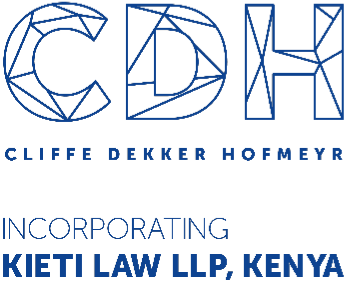By Clem Daniel, a director at Cliffe Dekker Hofmeyr Inc.
With the coming into effect of the Property Practitioners Act, 2019 as of 01 February this year, the regulatory landscape will change for estate agents. The final Regulations were published on 14 January. A brief synopsis of some points arising out of the Regulations is provided below. Note however that reference should always be had to the complete text of the Regulations and that this note is intended only to raise awareness.
Fidelity Fund Certificates (‘FFCs’)
A single FFC will apply to all capacities in which a natural person property practitioner acts. Unlike in the past, there will be no need to hold an FFC in respect of each separate capacity. The FFC will only state the industry respect of which the FFC is granted and not the capacity of the natural person property practitioner.
Natural persons who apply for FFCs are deemed to have applied for exemption from the requirement to hold a tax clearance certificate or a BEE certificate and such exemption must be granted by the Property Practitioners Regulatory Authority (‘PPRA‘).
It is now specifically provided that FFCs are issued by uploading on the portal of the and that once it is available on the PPRA’s portal, it comes into the possession of the property practitioner. If the PPRA fails to observe the time periods in section 49 (1) of the Act (30 working days but subject to an extension of a further 20 working days), then the PPRA must issue the FFC within 10 working days. The property practitioner is then considered to be compliant with all the provisions of the Act relating to the possession of an FFC.
Regularisation & Amnesty
The PPRA may not withhold an FFC because of historical non-compliance (preceding the previous date upon which an FFC was issued) unless the previous FFC was issued conditional upon the property practitioner bringing a specific matter into compliance or a complaint has been lodged with the PPRA about the non-compliance concerned.
However, the PPRA may refuse to issue an FFC if the applicant concerned is currently subject to criminal prosecution or disciplinary proceedings for a failure to comply with the 1976 Act or its regulations or the applicant previously had an FFC withdrawn for a failure to comply with the 1976 Act or its regulations.
The Regulations require the PPRA to consult in good faith with industry representative bodies to arrange for the regularisation of the affairs of property practitioners.
The Regulations provide for a species of ‘amnesty’ for persons who were not previously registered as estate agents under the 1976 Act, provided they register with the PPRA within six months ‘of the effective date’ and they subsequently obtain an FFC within a period of no more than 12 months following the date upon which they register with the PPRA.
Former Directors, Partners, Trustees or Members
The Regulations provide for a mechanism for the auditors or attorneys of a business property practitioner (i.e. what was previously an ‘estate agency’) to confirm that a natural person who was a director, partner, trustee or member of the business in question has been removed, has resigned or has withdrawn from the relevant position. Such confirmation will constitute proof of that fact, provided it is accompanied by an affidavit by another director, partner trustee or member of the business property practitioner confirming that fact in the prescribed form.
Trust Accounts
Property practitioners may be exempted from operating trust accounts in certain circumstances.
A property practitioner may be exempted if they have never received trust monies or no longer receive trust monies and they submit an affidavit to the PPRA addressing certain matters (as prescribed in the Regulations) and, if they have operated a trust account, they provide evidence that the account has been closed and all funds have been properly disbursed. Where an exemption is granted, this then also avoids the need for further audits of trust accounts in the future. Moreover, financial statements will only need to be independently reviewed.
A property practitioner may also be exempted from operating a trust account if it mandates another property practitioner that specialises in collecting and distributing trust payments, to deal with matters on its behalf.
Fees & Late Application Penalties
Each property practitioner who is a natural person is required to pay a fee of R 2340 every three years. The PPRA may permit a property practitioner to pay R 780 per annum instead of a once off payment every three years. Candidate property practitioners pay R 380 during each year of their candidacy. A first-time entrant is also required to pay an initial registration fee of R 400. The fees are escalated automatically each year in accordance with CPI.
If a property practitioner applies late for an FFC, a penalty of R 125 is imposed for each month or part of a month by which the application is late.
No fees are prescribed for business property practitioners.
Conveyancers & FFCs
The Act prohibits a conveyancer from paying a property practitioner unless it has received a certified copy of the FFC of the property practitioner valid during the period or date upon which the transaction in question occurred. The Regulations take matters further by providing that a conveyancer must obtain a copy of the FFC of both the business property practitioner and the natural person property practitioner (or practitioners) ‘who were concerned with the transaction question’.
Transformation
The Property Sector Transformation Fund (‘PSTF‘) is required to utilise a certain proportion of its funds annually to promote and support historically disadvantaged property practitioners. Amongst other things, the PSTF is to provide support for historically disadvantaged individuals to purchase existing businesses; to assist in the training and development of individuals; to assist in the regularisation of the affairs of historically disadvantaged property practitioners; and to assist historically disadvantaged individuals who are concerned with the development of residential properties in affordable and secondary housing markets.
Complaints
The Regulations establish a procedure for the lodging of complaints. The PPRA is empowered to mediate a matter. It may also refer a matter to adjudication. A matter may only be referred to adjudication if there is sufficient evidence to substantiate a complaint and that complaint if proven, will constitute sanctionable conduct or otherwise if the property practitioner has failed to comply with a compliance notice. There is a fair degree of detail around the adjudication process, which also allows for an appeal procedure. Payment of compensation and publication of the outcome of the adjudication is provided for.
Training & Qualifications
The PPRA is required in consultation with industry representative bodies, to establish qualification standards, course materials, professional designation examinations and training standards. These may vary according to the industry concerned.
The standards, course materials and examinations are to be different in respect of principal and non-principal property practitioners.
Subject to certain transitional provisions, practical training to be carried out in six modules over six months is a prerequisite to being entitled to practice as a property practitioner. The practical training is to be designed primarily by the leading industry bodies.
Examinations are to be written four times per annum and individuals may apply to be examined in a language other than English, or to be examined orally. There is no requirement to be registered as a property practitioner to be entitled to study for and write, the relevant examinations.
Any person who ceases to practice as a property practitioner for five years will be required to requalify.
Candidate property practitioners are restricted for a period of six months from which they first qualify and become registered, from concluding mandates or sale or lease agreements, unless the agreement in question has first been reviewed and co-signed by another qualified property practitioner who is not subject to such restriction. A person who co-signs such agreement assumes a duty of ensuring that the document is compliant with the relevant norms and standards.
The PPRA is entitled to require property practitioners to undergo continuing professional development (‘CPD‘) on a rolling three-year cycle basis. Property practitioners are required to complete a minimum four modules during each of the three years and thus, a minimum of 12 modules over the three years.
CPD may also be provided on an in-house basis or by independent training organisations.
Where CPD is provided by the PPRA, a property practitioners required to pay R 1500 per annum for CPD. Where it is provided on an in-house basis or by an independent training provider, an amount of only R 500 is payable annually to the PPRA.
Communications
All letterheads and marketing materials must reflect the words ‘Registered with the PPRA‘ and if a candidate property practitioner is using such materials, it must be clearly stated that the individual concerned is a candidate.
All communications (emails, letters, contracts, business cards, marketing materials and any similar matter) must reflect that the business concerned is either a sole proprietorship or a business property practitioner and that it holds an FFC in that capacity, must state whether not the business in question operates a trust account and must state the name of each natural person property practitioner that is associated with the business, including their capacity (principal, full status or candidate) and that they hold a fidelity fund certificate.
Agreements to which a property practitioner is a party are required to contain a warranty as to the validity of their FFC as at the date of signature of the agreement.
Retention of Records
In terms of the Act, property practitioners are required to keep records for five years of all ‘documents exchanged’ with the PPRA, correspondence between employers and employees and between franchisors and franchisees, copies of agreements, mandates, mandatory disclosure forms and any other documents relating to the financing, sale or leasing of a property and all advertising and marketing material. The Regulations now add to the foregoing ‘all electronic communications’ exchanged with members of the public, including exchanges between employee property practitioners and members of the public. Specifically excluded are exchanges on social media.
Business Brokering
Business brokering now includes activities relating to small, micro and medium enterprises as well as franchises, start-up ventures and franchise concepts. This applies whether the activity in question relates to a sale of a business or the sale of the interests in the enterprise operating the business (e.g. a sale of shares).
Developers
Now included in the definition of a ‘property practitioner’ is the sale or auction by a property developer of any ‘interest, right or title in or to a property or a property development’ unless such sale or auction is being handled by an existing property practitioner. The implication is that developers who handle their own sales and marketing will now need to register and qualify as property practitioners.
Undesirable Business Practices
The Regulations prohibit certain business practices.
A franchisor may not require a franchisee business to only be marketed, promoted or disposed of (sold) through the auspices of the franchisor.
Restrictions are imposed to prevent any entity that controls a residential property development (the development manager) from (a) receiving any reward for preferential access to the marketing of properties in the development (b) requiring that properties only be marketed through the development manager, (c) requiring that properties may only be disposed of through the development manager, (d) seeks to advantage any property practitioner or group of property practitioners in providing services in respect of the properties in the development or (e) effectively excludes or disadvantages any property practitioners from providing such services.









